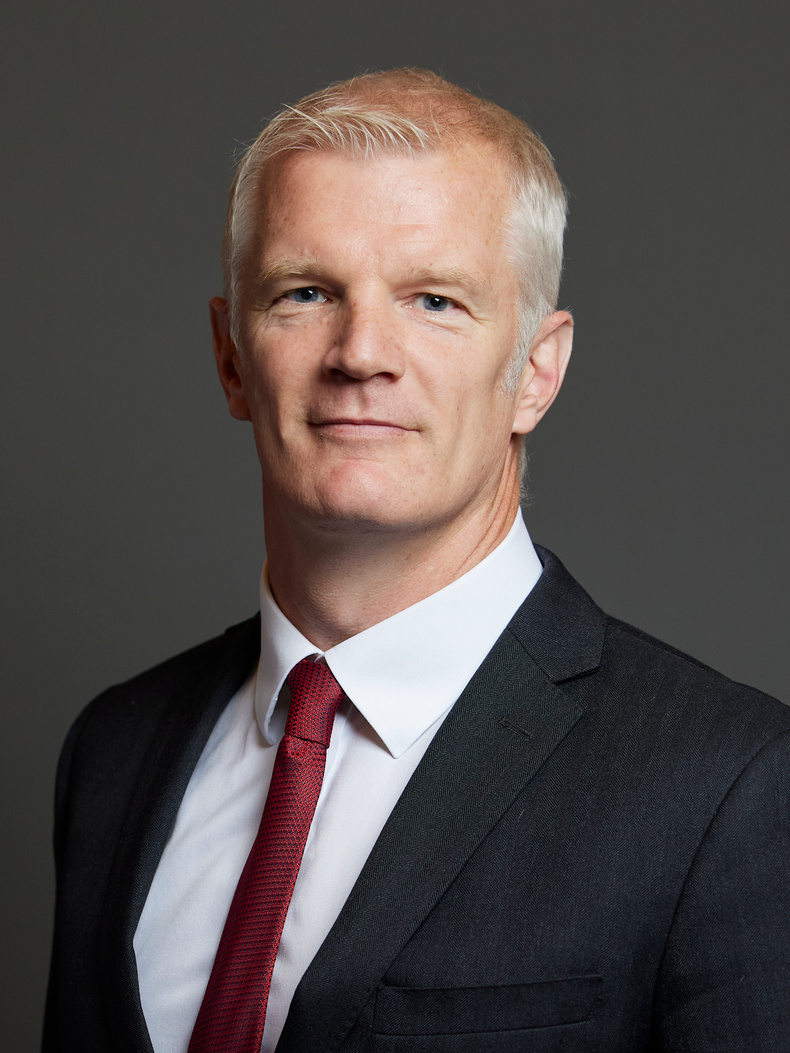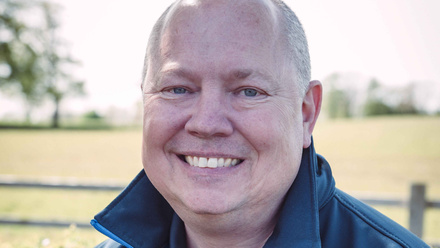Taking back responsibility: Al Carns on the legislation reshaping perceptions

Al Carns (pictured), Minister for Veterans and People at the Ministry of Defence, is responsible for supporting the UK’s 2.1 million veterans.
A seasoned commando who rose through the ranks to become a Colonel, he brings lived experience to one of the most people-centred portfolios in government.
In this exclusive interview, Carns outlines the Government’s priorities for supporting Armed Forces personnel and their families — and explains how new legislation is helping to shift outdated narratives.
He also highlights how SMEs can benefit from the OP Ascend programme, which is helping employers connect with veterans more effectively through targeted job matching.
Can you share an overview of your role as Minister for Veterans and People?
I’m the Minister for Veterans and People in the Ministry of Defence.
My role is to represent all the 2.1 million veterans we have in the UK, and all the people within the military, and ensure that we provide the best services and support to allow them to do their jobs and flourish.
That includes Reserves, Cadets, Civil Service personnel working for the Ministry of Defence and the military, serving members of the Army, Navy and Air Force, and indeed all their families, and the families of those bereaved as well.
What are the Government’s priorities when it comes to supporting veterans and their families? Can you tell us about any recent initiatives or legislation that have made a tangible difference in the lives of ex-service personnel?
The problem is that since the First World War, the Government hasn’t ever taken responsibility for its veterans.
It’s often relied on the third sector- the charitable sector- to do that for it.
We’ve launched a scheme called OP Valour, which provides £50million over three years, which for the first time in recent history will establish support for veterans at national, regional and local level.
At national level, it will build a data-led headquarters to allow us to analyse where veterans are, what support they need, and how we can help them more effectively.
At the regional level, it will put regional officers into the Councils all the way across the country, to ensure that veterans needs and requirements are understood and dealt with.
And we will sponsor up to 40 centralised hubs- think a walk-in hub on your high street- which will provide wrap-around care from housing and pension support on any given day.
In exchange for that support, we will get data, which will come up through regional field offices to the headquarters, which will then allow us to analyse it, and then indeed improve the services over time.
It’s a very positive step. We just now need to implement it.
Can you share a brief overview of your time in the Armed Forces — where you served and in what role?
I joined as a young Marine when I was 18 or 19. I did four years in the Marines- a couple of tours of the Arabian Gulf, boarding vessels where they were smuggling oil out of Iraq.
I then decided to become an Officer, so I went back through Commando training again, which takes a year- it’s torturous.
Then I went to Northern Ireland where I served for six months.
When I came back from Northern Ireland, I then specialised again in a reconnaissance unit and was at the spearhead of the fighting force.
I then went to Afghanistan for six months. I came back and specialised again before doing four further tours of Afghanistan, multiple tours of Africa, the Middle East, and Europe.
I was then promoted to Lieutenant Colonel, commanded at every level, and was finally promoted to Colonel.
What led to your transition from the Armed Forces into politics?
I decided that the war in Ukraine has made such a change to the way of technology fighting war, and we needed to change faster.
I didn’t see the military as changing fast, I didn’t see a built-in hierarchy to change fast enough, so I decided to leave to come into politics to change faster.
Change by the ballot box, not by the bullet.
For me there are three main priorities as a politician- defence and security: the character of conflict, and helping other people make the best deal for our armed forces.
The second one is becoming an education superpower. I’m big on education. I think our education system needs revamping. We’ve just seen the recent funding going into that to get us on that step.
And the third priority is to make us the healthiest nation in Europe.
We’re one of the unhealthiest countries in Europe and we should be investing in the mental and physical wellbeing of our children and our population.
How has your military experience shaped the way you approach your work today?
I think in the military you get a huge amount of time on training of the individual.
You take a lot of time to ensure that people are the very best in a military setting.
That includes a lot of leadership and management planning over years of leadership training and practice.
I think actually, coming into this political sphere, the ability to compartmentalise, prioritise, delegate and trust teams to deliver is very useful. It seems to be working well.
Whether that’s the OP Valour initiative, whether it’s £4billion into drones, whether it’s £7billion into Defence housing, we’ve been able to effectively plan out and lobby to get the right money to Defence.
It’s been hugely successful.
Are there specific skills or values from your service that still guide you day to day?
Yes, absolutely.
Honesty, integrity, treating everybody with a clean page when you meet them, enjoying your work and having a happy team and a bit of a laugh as you go through.
I always say, “A vision without a plan is a dream”, so I’m all about ensuring that planning delivers the vision we’re working on.
Do you think the business or political world fully understands the strengths veterans bring to the table?
No. Unfortunately in some cases, the ‘mad, bad and sad’ narrative is amplified because we need to raise more money for the third sector and therefore it skews people’s perceptions of veterans.
When, in reality, 86 per cent of all veterans that get help when leaving the military go straight into work within six months and contribute a huge amount to the national economy.
Often, military personnel fail to translate what they do in the military into the civilian space.
For example, an electrical or mechanical engineer in the military could be working on some of the most powerful electrical generators in the country, but sometimes that’s lost in translation when they come into civilian street.
References, qualifications, educational experience that they have are different.
I think we need to work very hard to educate industry about what qualities these people have.
OP Ascend is one programme that we’ve run that’s helped 3,500 veterans already, with 420 employers matching veterans into the right jobs post-service.
It’s a programme that’s working well.
So, any employers looking to employ veterans should engage with OP Ascend and get their company on the books and they can help businesses recruit.
We know there’s an issue in some cases recruiting the right talent. But the military has between 10-15,000 people leave each year, and a large proportion of those people offer a huge amount into the economy.
What role do you think organisations - especially SMEs - can play in supporting service leavers or reservists?
There are over 5 million small and medium enterprises in the UK. I go back to my previous point- seek out veterans and recruit where you can.
Help them translate the skills and the experience that they have. Businesses may find that they add a huge amount of value to the small and medium enterprises.
How do you personally mark or reflect on Armed Forces Week?
I think it’s a great time to celebrate what our military does for us.
In today’s society, you’re more likely to know a veteran than you are someone in the Armed Forces.
Society and Defence have drifted apart, because we’ve been involved in wars of choice, and there hasn’t been necessarily a national emergency that’s required our Armed Forces.
In this geo-political age, it’s very important that we understand that the only thing protecting us and protecting our democracy and our freedoms, arguably at the very front line, are our security services and our military. If we don’t recognise and champion that, then we’re undermining the very core values of the country.
With Birmingham set to host the Invictus Games in 2027, what do you think the impact of the event could be - for the city, for the Forces community, and for the wider business community?
I think for the Forces community, it’s a returning circle.
So, a lot of people, when they got injured in combat in Afghanistan and Iraq, came to Selly Oak Hospital and worked with the amazing people there.
And so having the Invictus Games here, it’s a huge moment for them.
I think for the businesses, everyone should get involved. I think the legacy of the Games isn’t a physical entity.
The legacy of the Games will be our collective memories of how good the Games will be.
So, I’d like to see lots of schools and young people getting involved, to go and be inspired by some of these amazing people and the things they do.
That’s the legacy we should be pushing for.
There’s also a great economic opportunity.
The Invictus Games will bring a huge amount of people to the City, and we should showcase what Birmingham’s got, which is an amazing amount- the ‘Thousand Trades’, the million people we have here with skills- get them involved, volunteer, showcase the City, and champion it.
It will be great.



